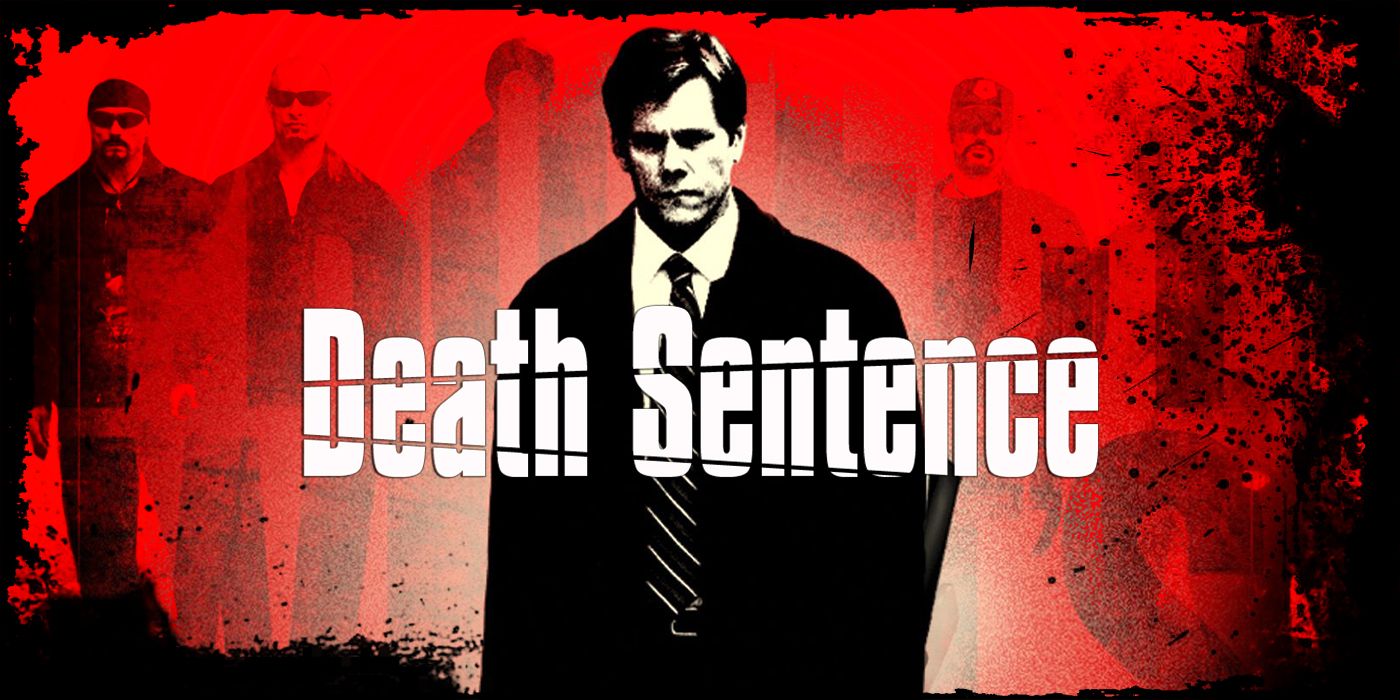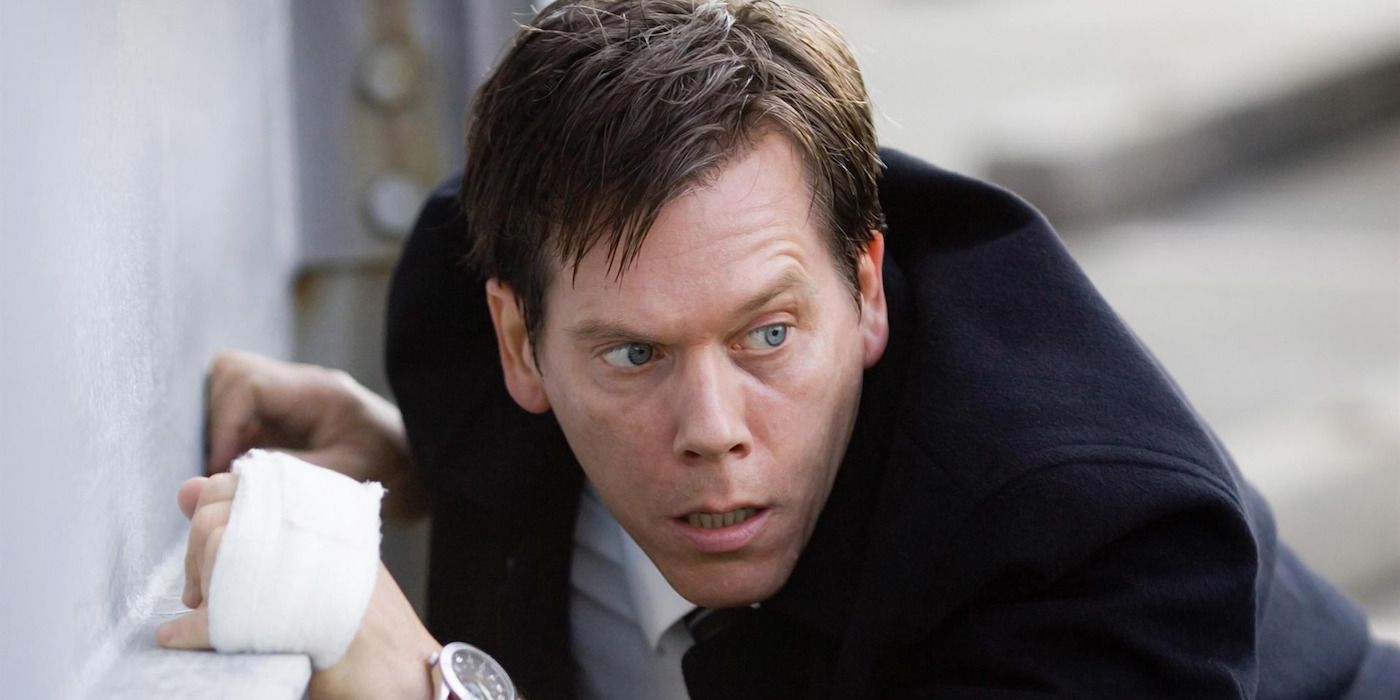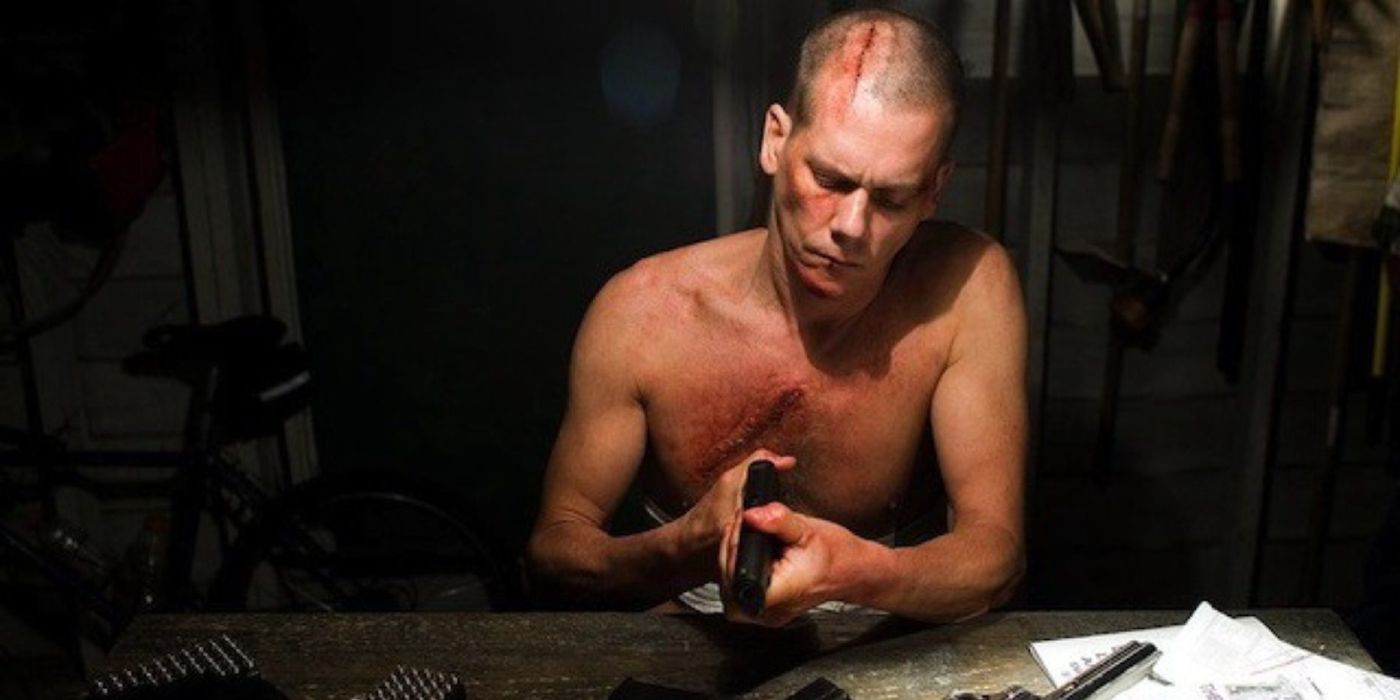Revenge as a story engine is nothing new. From ancient Greek plays to William Shakespeare to Ingmar Bergman, the idea of "someone doing something wrong to me so I do something wrong to them" is wrought with primal power, pervasive in the most influential, high-falutin', and well-regarded pieces of art and storytelling.
But as a subgenre of mass, lurid, trashy cinema, the "vengeance thriller" reached a particularly calcified blueprint in 1974's Death Wish. Starring Charles Bronson, the film's plot is simple: A man's wife is killed and his daughter sexually assaulted by criminals, and he takes the law into his own hands to punish them violently. Inspiring a multi-film franchise, including a 2018 Eli Roth remake starring Bruce Willis, Death Wish queasily poked at the anxieties gurgling in the belly of a certain type of white American male, offering them a particularly explosive, borderline fetishistic form of cinematic wish fulfillment. The middle-to-upper-class man being invaded by lower-class "thugs"; the "thugs" in question being non-white; the point of invasion being the female body which "belongs to" and "motivates" the man — these are the icky feelings and philosophies splattered across the screen in Death Wish, representing a worrying anchor in the midst of changing seas, setting up the lane for countless other films in its wake.
Brian Garfield, the author of the Death Wish novel the film is based on, didn't like this. He meant for his work to be a critique, not a celebration, of all these horrific impulses. He wanted to explore the idea "that vigilantism is an attractive fantasy, but it only makes things worse in reality." Instead, thanks to changes insisted upon by producers, the film goes right up to the edge of arguing that vigilantism, that "an ordinary guy who descends into madness" is good. As an act of "penance," Garfield wrote a new novel, a sequel to Death Wish called Death Sentence, a book that more explicitly examined the horrific toll of violent revenge.
32 years after that novel was published, in 2007, James Wan directed a film adaptation, while not directly setting it in the Bronson film universe. And this time around, the psychological, self-loathing ramifications of vengeance were explored in exacting, harrowing, grimy detail.
Wan, who was just coming off of accidentally kick-starting a lurid sub-genre of mass cinema featuring elements he was intending to comment on rather than luxuriate in, knows how contemptible his main character is. And so does his star, Kevin Bacon, willing to shave away his ego at just about every point of the picture. Unlike Bronson's "badass stoicism" in the Death Wish franchise, Bacon's take on his character's slide into mayhem is marked by physical exertion, even exaggeration. As his Nick Hume runs, fights, and shoots his way through the criminals he's attempting to pay back, Bacon's face contorts into wild expressions of fear, a kind of purposeful, controlled representation of Nick's complete lack of control. Bacon understands the "descending into madness" part of the assignment, and is more than prepared to show Nick's floundering in all its unflattering glory. Tellingly, to support this character choice and underline it as a thesis, some of Wan's most formally stylish-but-brutish set pieces, including a oner in a parking garage, are founded not on carefully choreographed explosions of violence but on the sweaty, struggling, soul-sucking moments in between. The journey is tiring and futile. Our hero cannot be trusted.
But could he ever be? In the film's first act, Wan elevates the requisite "middle-to-upper-class white guy loves his family" (emphasis on his) setup by infusing it with inherent dread, and Bacon elevates it by infusing it with inherent coldness. The opening titles play over home video footage of Nick, his wife Helen (Kelly Preston), and their two sons growing up so fast. While there is an impressive amount of chemistry and goodwill communicated in this sequence (making the murder of Nick's eldest son hit surprisingly hard beyond its plot necessity), Wan chooses to play it out sparsely, silently, plain titles over plain footage with no score. To use aural rather than visual negative space is the sign of a pure filmmaker who knows his craft inside and out, and Wan's mastery of this technique (even in its most violent, aggressive sequences) fills the viewer with emptiness every single time — not unlike the gnawing, unfillable emptiness that comes from a purposeless obsession with revenge.
Bacon portrays Nick as a man aware of his inherent emptiness trying desperately to fill it, even before he snaps into violent means. Nick is all about control, personal power, making sense of a senseless world. He's an actuary, constantly weighing and reckoning with the idea of "risk" as a slippery slope out of the confines of control. He loves that his eldest son Brendan (Stuart Lafferty) works so hard at becoming a confident, controlled hockey player, but doesn't love that Brendan wants to move away to pursue it professionally, reacting to this news with assertions that he should be in charge of such a risky decision. This need to manage, to organize, to render himself as the essential power source for all decisions makes him feel brittle pre-vengeance, and abjectly broken once he shifts. The myth of the middle-to-upper-class white American man is sneered at from the start, foreshadowing a similar breakdown of values that were already broken down in prestigious works like Breaking Bad (which began airing one year after Death Sentence's release). One of the hardest moments of dramatic excoriation comes not in Nick's quest for revenge, but in his surviving son Lucas (Jordan Garrett) tearfully insisting that Nick loved Brendan more than him, that in all his calculations of control Brendan's existence made "more sense." I believe him — and I believe why this sense of constantly shifting, ego-driven need to control turns into a personal drive into vengeance.
You could make the argument that Death Sentence loses its self-awareness and sense of criticism in its third act, instead shifting into a kind of pulverizing, fetishized, ultraviolent entertainment played straight down the middle. Nick shaves his head, buys a shit-ton of guns, and plows through the minions who devastated his family. Formally, Wan cranks up his ostentatious style, spinning the camera around Bacon as he readies his guns, casting washed-out colors over an abandoned church-set showdown, allowing composer Charlie Clouser to let the industrial nu-metal rip. Performatively, Bacon trades in his bug-eyed terror for that Bronson-esque low-and-slow stoicism, all gravelly voice and glowering eyes. Broadly speaking, the third act can start to feel like the kind of first draft movie you'd picture when someone tells you "the guy who directed Saw is making an unofficial Death Wish sequel."
But there's still more going on under the hood, and the shiny coat of paint of the hood itself still might be purposeful. A huge plot point triggers the film's move from its second to its third act — and in that trigger, Wan's style shifts from sparse remove to stylish subjectivity. Wan is finally giving Nick the character, not us the audience, the "revenge thriller" he's been trying desperately to exist in and control. It's an attempt at a formal act of mercy, of alignment rather than critique, exacerbated and supported by Bacon's tough guy schtick. But it all ultimately rings hollow, torn asunder by the textual prods at these vengeance thriller tropes. The criminal minions are shown struggling with and mourning those they've lost in a welcomely subversive authorial act of empathy. John Goodman, as our colorful, loquacious gun salesman, reveals to Bacon that main criminal baddy Garret Hedlund is his son... right before accepting Bacon killing him so long as their level of control (here represented by capitalism and death machines) stays in place, eerily pushing Bacon's logic of "I win if I'm in control" to its most morbid ends. The film's final notes are not one of triumph or catharsis, but of a lingering, melancholic realization that this was likely all for naught.
In the first act of Death Sentence, Nick erupts when he finds out his son was killed as part of a gang initiation: "Are you saying Brendan was killed so some asshole could feel like a man?” Throughout the rest of the film, we watch in agonized horror as Nick becomes the asshole who kills so he can feel like a man, can fill up that emptiness, can be the king of his fundamentally broken world. The film works because the film knows this. It works because its title isn't about what Nick is going to give the baddies in his wake: When Nick accomplishes his first act of revenge, Hedlund's character calls him up and threatens his family, insists that Nick is in control of the vile fate that's about to befall them. "You just bought them a death sentence, motherfucker," he barks. I believe him, and the film does, too.



